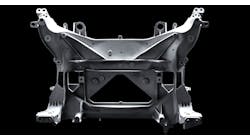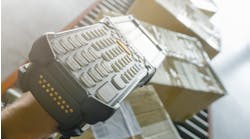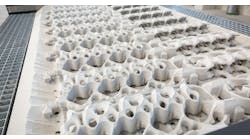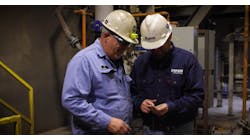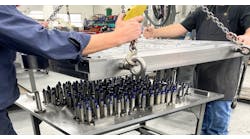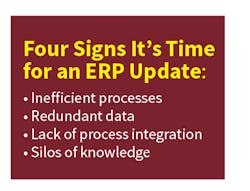Using a legacy ERP is the business equivalent of walking at a steady pace while people sprint around you: You make progress, but you aren’t keeping up with the crowd. And you certainly aren’t out in front of the crowd. In fact, with your legacy ERP system you are slowly being left behind.
In discussions of Enterprise Resource Planning software, a legacy system is any program that is no longer being enhanced or updated. It may be based on older technology, like AS-400 or even DOS.
But, there are a lot of valid reasons why you haven’t updated to a modern ERP, right? The changes to your routines will be too disruptive to your staff. And how will you know if the value of the new system tops what you’ve already invested in the legacy system? Plus, your team has invested time enhancing the legacy system to customize your processes. And the old system still “works”.
None of these reasons (or, excuses) outweighs the costs and risks of not staying current with the state of enterprise technology.
Outdated enterprise technologies have inherent risks, starting with data security, as manufacturing is a proven cyber target. Financial concerns should include the lack of single-source, business information veracity for both production and financials. There is a price to be paid for duplicate or inaccurate data, as well as any process workarounds. Lack of visibility into real-time data on production also costs a business by way of inaccuracy and lost opportunities.
The ability to customize has been one of the frequently cited benefits of many legacy ERP systems. Customization to the ERP software’s standard programming has been something many manufacturers have taken advantage of, to better fit ERP systems to their specific workflow and manufacturing processes.
Unfortunately, the price of customization often is the loss of any ability to upgrade the technology, if upgrades are available. Customizations require system process-checks and possible re-programming after upgrades are applied. When the programming resources (i.e., via the original ERP provider or internal staff) no longer are available, upgrades stop being an option and your organization’s customized ERP technology falls behind the current state of enterprise technology. What had been a technological advantage has become a handicap to progress.
Modern ERP applications, among other benefits, offer the ability to "personalize." Different than customization cobbled onto the programming framework of the ERP technology, personalization options are directly built into the ERP software by the software provider as a part of the user settings and preferences. In best-of-breed ERP options, a level of personalization is available at both the company and user level, giving modern manufacturing workers choices as to how they interact with data. Because the personalization choices are part of the ERP software build, they pose no barrier to technology upgrades - allowing manufacturers to stay up-to-date with innovations, for example the latest advances in 3D printing technology advances or interfacing MES (Manufacturing Execution Systems) on the shop floor.
Updating your technology stack to an ERP built for modern manufacturing processes and the current business environment has many other benefits. Software as a Service (SaaS) offers disaster recovery and the protection of cloud-based servers. Accuracy of financial reporting with real-time data insights into orders and customers is improved. Inventory accuracy and on-time delivery are part of the key performance indicators (KPIs) measured in modern ERP systems. Even better, modern ERPs are built for a mobile experience – allowing the staff to monitor what matters from wherever they are.
The benefits to using a modern ERP expand even more when you choose an ERP built specifically for your manufacturing niche. In the metalcasting industry, an industry-specific ERP will include processes for: core tracking by date, assigning heats to shop orders, planning a heat by furnace, having options for invoicing metal surcharges, and many other metalcasting specific functions. Real-time, single-source knowledge and deep integration of industry data allow your business to harvest additional benefits from a modern, industry-specific ERP.
As your metalcasting business faces new challenges, you need to measure new metrics. Modern ERP systems make it possible to track KPIs previously not available in legacy ERP systems. What would it be worth for you to know where your capital projects spending is? Would it be valuable for you to know a budget forecast by tool or sales history? What would tracking job costs by customer be worth? How valuable would it be to be notified when a tooling limit is reached – before the casting shows an issue? What would happen to your labor costs if you could auto-capture downtime?
Once, buying ERP software was viewed as an expense sinkhole – an outright purchase of a conventional software program with all of the associated hardware expenses in order to run it. In the present manufacturing environment, there are ERP options available that require no additional hardware and the technology may be purchased as a service, mitigating the large capital outlay. For a fraction of what you once paid for a customized ERP system that couldn’t be upgraded you could now have access to the latest updates and features a modern ERP offers – and with it, access to better data for your business decisions – allowing you to keep pace with the speed of business.
Alexandria Trusov is the Marketing Manager for B&L Information Systems, and an experienced marketing consultant to manufacturers and other B2B companies. Contact her at [email protected] or visit www.truinsightsconsulting.com.
